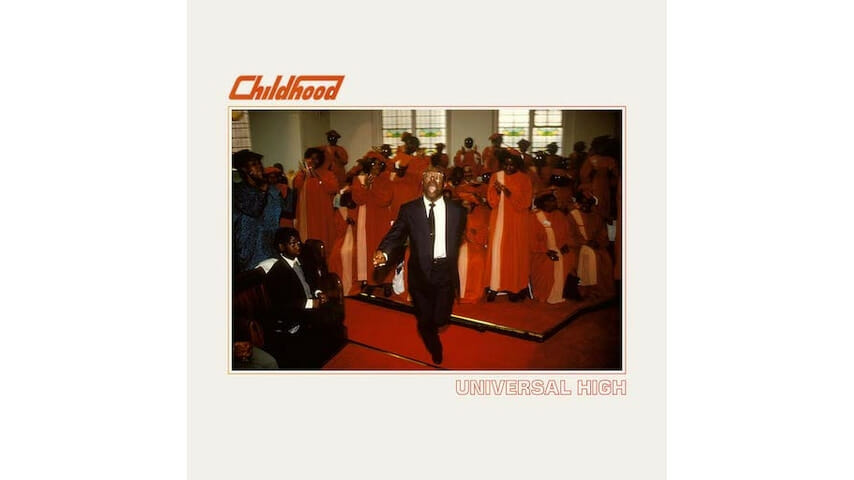Childhood: Universal High

A few years back, a smoky cloud of British shoegazing, psychedelic-inspired groups floated into the mainstream, drifting into American blogs and music festivals, only to soon be swept away by a stronger gust of wind. Amid this English fog was Childhood, the Nottingham-based band whose 2014 debut Lacuna cast its dreamy pop with heavy-lidded melodies that lacked any distinguishable character. There wasn’t much backbone to it either as the group has returned, three years later, and completely abandoned the dazed reverb and fuzzy vocals now that the trend has worn thin.
Childhood frontman Ben Romans-Hopcraft apparently recently discovered, and then wholly adopted, soul music as the chief inspiration for his band’s sophomore LP, Universal High. The singer returned to his mother’s South London flat following the Lacuna tour cycle and became enamored with her collection of soul and funk records. In interviews about the new album, he has dropped names like Shuggie Otis and the Blackbyrds, as well as the samples he picked up on from MF Doom and Q-Tip albums.
He’s clearly taken these sounds to heart, but his reference points on Universal are a little on the nose. Isolate any one detail of the album—a sharp drum kick, reverbed synth, slap bass or high-pitched harmony—and it’s easy to trace it back to its source. He even went so far as to name the very Cameo-inspired track on the album “Cameo.” Add to it that the band went to Atlanta to record, so as to better soak up the spirit of Southern soul. All are perfectly acceptable and chart-friendly moves. Childish Gambino took his Funkadelic riff “Redbone” to the top of the R&B charts, after all. But when a record is solely defined by its influences, as Universal High is, it’s also difficult to find anything new to absorb from it.
What’s not in doubt is Romans-Hopcraft’s ability to put together a catchy song. Along with his own talents, his long-term friendship with Fat White Family’s Saul Adamczewski and recent work with Sean Lennon in New York has provided him with a well-informed pop education. With the deep grumble of an opening on “Cameo,” the satisfying sync-up between the synths and chorus on “Understanding” and Romans-Hopcraft’s impressive baritone-to-falsetto vocal range, the elements are all there to create tremendous tracks.
-

-

-

-

-

-

-

-

-

-

-

-

-

-

-

-

-

-

-

-

-

-

-

-

-

-

-

-

-

-

-

-

-

-

-

-

-

-

-

-








































